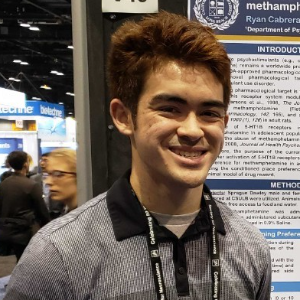Title : Zolmitriptan, a 5 HT1B receptor agonist, attenuates the rewarding effects of methamphetamine in adolescent rats
Abstract:
Activation of 5-HT1B receptors was previously found to disrupt the expression, but not the acquisition of methamphetamine (METH) conditioned place preference in adult mice, an animal model of drug reward. The present study tested the hypothesis that activation of 5-HT1B receptors would attenuate the acquisition of METH reward in adolescent male and female rats. Specifically, we examined whether Zolmitriptan, a 5-HT1B/1D agonist, modulates the acquisition of METHinduced CPP. Beginning on postnatal day (PD) 28, male and female adolescent rats underwent a 10-day methamphetamine CPP procedure. On days 1 and 10, rats were tested for their pre-conditioning and post-conditioning place preferences, respectively, during 20-min sessions. On days 2 -9, rats underwent 30-min conditioning sessions with saline in their initially preferred chamber or METH (0, 0.125, 0.25, 0.5, 1.0 mg/kg) in their initially non-preferred chamber on alternating days. For male rats, administration of Zolmitriptan (10mg/kg) 15 min before METH dose-dependently decreased preference for the METH-paired environment. Female rats displayed METH CPP after administering any dose of METH (i.e., 0.125-1.0 mg/kg). However, pretreatment with Zolmitriptan modestly reduced the preference for the METH-paired compartment. These results indicate that Zolmitriptan reduces METH reward in male and female adolescent rats. Furthermore, our findings, coupled with previous research, suggest that age, sex, and species may be important determinants for 5-HT1B-mediated attenuation of METH reward. Overall, these findings add to a growing body of literature that implicates 5-HT1B receptors as a potential target for psychostimulant addiction treatments.




